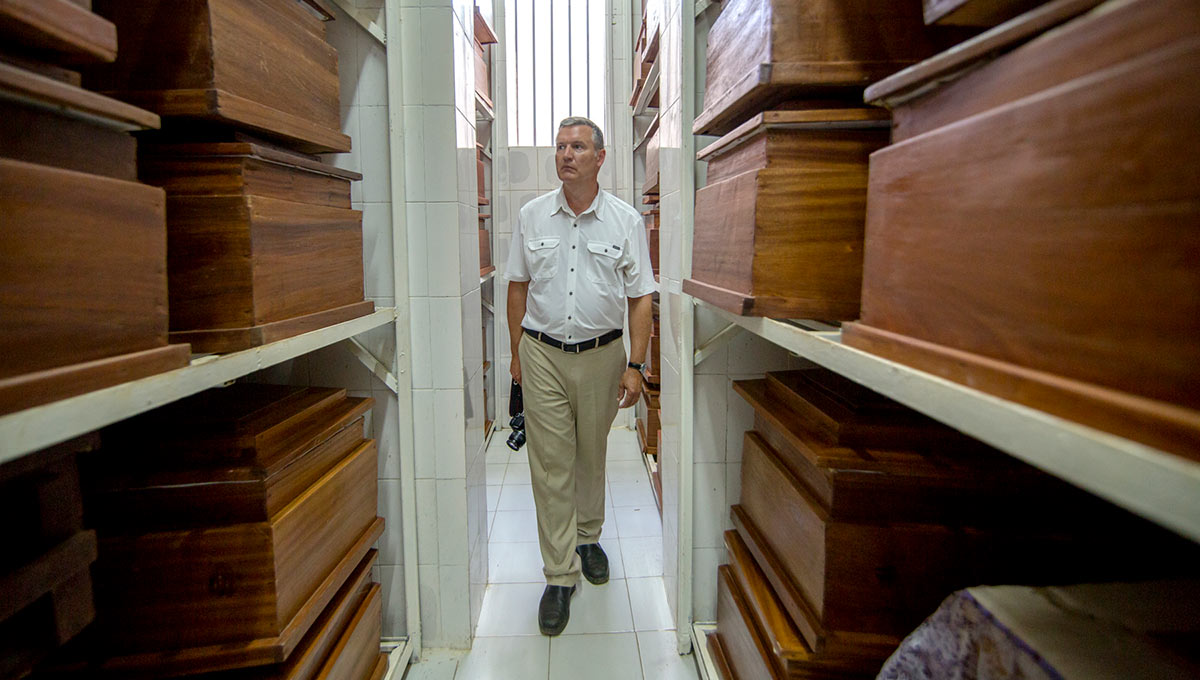Making Sense of Mass Atrocity
Contents:
Yet criminal law, with its liberal underpinnings, prefers to blame particular individuals for isolated acts. Is such law, therefore, constitutionally unable to make any sense of the most catastrophic conflagrations of our time?
Responsibility for mass atrocity is always widely shared, often by thousands. Chi ama i libri sceglie Kobo e inMondadori. We appreciate your feedback. The Content and Context of Hate Speech. Journal of Human Rights Practice, Vol. Is such law therefore constitutionally unable to make any sense of the most catastrophic conflagrations of our time?
Drawing on the experience of several prosecutions, this book both trenchantly diagnoses the law's limits at such times and offers a spirited defence of its moral and intellectual resources for meeting the vexing challenge of holding anyone criminally accountable for mass atrocity. Just as war criminals develop new methods of eluding law's historic grasp, so criminal law flexibly devises novel responses to their stratagems.
Top Authors
Mark Osiel examines several such legal innovations in international jurisprudence and proposes still others. Review of the hardback: Ranging from Dachau to Darfur, Cambodia and South America to the former Yugoslavia, Osiel weaves together deep understanding of how violence becomes organized, the cloudy relationships between leaders and others, the role of emerging networks of violence, and the law's difficulties in coming to grips with assigning responsibility for mass evil.
Academically original, yet written in a lively, accessible voice, this book is essential reading on one of the central moral, political, and legal struggles of our time.
- Manual of Critical Care Nursing - Elsevieron VitalSource: Nursing Interventions and Collaborative Ma;
- Pepita Jiménez con Cuentos y diálogos (Anotado) (Spanish Edition);
- Wildy & Sons Ltd — The World’s Legal Bookshop Search Results for isbn: ''!
- ;
- Making Sense of Mass Atrocity by Mark Osiel!
By addressing them not only from a legal perspective, but also drawing from a vast literature outside the law … Mark Osiel engages the reader into a much needed 'thinking outside the box' exercise, inviting international criminal lawyers to leave the 'professorial echo chamber' and to have a fresh look at the social realities of mass atrocity and the legal theories that try to capture it. The result is a refreshing analysis of these theories as they emerge from the jurisprudence of the ad hoc tribunals and the ICC … Osiel paints a fascinating picture of the political context in which legal choices between these theories are made, exploring the conflicting incentives of international and national prosecutors in post-conflict societies and explaining why national and international courts often treat similarly situated offenders differently.
- ?
- .
- .
What most distinguishes Osiel's contribution is his avoidance of legal or moral idealism. Exploring the scope and limits of the law's power over such behavior, Osiel offers sage, judicious, balanced, and realistic proposals for finding our way toward a more law-governed international community.
Cambridge Core - Criminology - Making Sense of Mass Atrocity - by Mark Osiel. "Who done it?" is not the first question that comes to mind when one seeks to make sense of mass atrocity. So brazen are the leader-culprits in.
A bold, highly instructive, and invaluable contribution to transnational humanitarian law. To send content items to your account, please confirm that you agree to abide by our usage policies. If this is the first time you use this feature, you will be asked to authorise Cambridge Core to connect with your account. Find out more about sending content to.

To send content items to your Kindle, first ensure no-reply cambridge. Find out more about sending to your Kindle. Note you can select to send to either the free. Find out more about the Kindle Personal Document Service. Book summary views reflect the number of visits to the book and chapter landing pages. This data will be updated every 24 hours. Get access Buy the print book. Jus Post Bellum and Transitional Justice. American Exceptionalism and Human Rights. Politics and the Past.
- The Meal That Heals: Enjoying Intimate, Daily Communion with God.
- The Worm Within The Skull (The Splintered Cross Book 1).
- Search LPBR!
- .
- What is Kobo Super Points?;
- .
The Case Against a Democratic State. Sex Slaves and Discourse Masters. Between Race and Reason. The Force of Law.
Making Sense of Mass Atrocity
Justice and Injustice in Law and Legal Theory. Torture, Terror, and Trade-Offs. The Secrets of Abu Ghraib Revealed: American Soldiers on Trial. Politicizing the International Criminal Court.
The Politics of Resentment. Forging a Convention for Crimes against Humanity. Accountability for Collective Wrongdoing. Amnesties, Pardons and Transitional Justice. Moral Accountability and International Criminal Law.
Join Kobo & start eReading today
Emergencies in Public Law. Secret Trials and Executions. On War and Democracy. International Criminal Law and Philosophy. Arendt, Agamben and the Issue of Hyper-Legality. Rant on the Court Martial and Service Law. Varieties of Sovereignty and Citizenship. Negative Emotions and Transitional Justice.
Bestselling Series
Principled International Criminal Justice. The 'Contextual Elements' of the Crime of Genocide. Asser Institute, a think tank associated with the University of Amsterdam. Osiel lectures widely on humanitarian law, both abroad and at the U. He regularly consults to international organizations and governments in post-conflict societies on issues of transitional justice. So brazen are the leader-culprits in their apologetics for the harms, so wrenching the human destruction clearly wrought, meticulously documented by many credible sources. Yet in legal terms, mass Cambridge University Press Bolero Ozon.
Making Sense of Mass Atrocity. Yet in legal terms, mass atrocity remains disconcertingly elusive.
- Leau dans lespace rural: Production végétale et qualité de leau (Mieux Comprendre) (French Edition)
- Outgoing
- Managing Stress with the Word of God
- Wil y el Gen del Poder (Spanish Edition)
- Human Rights and Gender Politics: Asia-Pacific Perspectives (Routledge Advances in Asia-Pacific Stud
- Road To Retirement For Baby Boomers
- LITTLE LORD FAUNTLEROY (non illustrated)